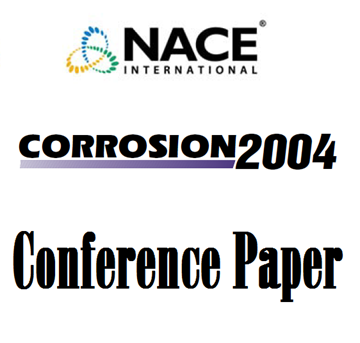Search
51315-5642-Effects of Chemical Treatment on the Corrosion Behavior of Magnesium Anode in the Potable Water Tank
Also Purchased
51315-5647-Study on the Performance of Magnesium Sacrificial Anode
Product Number:
51315-5647-SG
ISBN:
5647 2015 CP
Publication Date:
2015
$20.00
04044 Performance of High Potential Magnesium Anodes: Factors Affecting Efficiency
Product Number:
51300-04044-SG
ISBN:
04044 2004 CP
Publication Date:
2004
$20.00
97235 SACRIFICIAL ANODE CATHODIC PROTECTION OF AN UNDERGROUND STEEL REINFORCED CONCRETE STRUCTURE
Product Number:
51300-97235-SG
ISBN:
97235 1997 CP
$20.00




